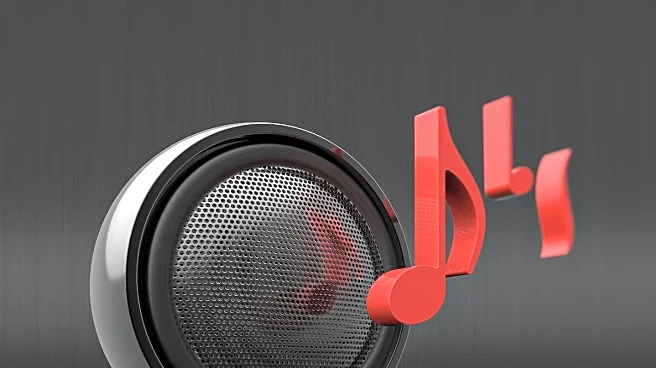What is the story about?
What's Happening?
A study led by neuroscientist Yilun Li at China's Henan Institute of Science and Technology has discovered that music can effectively reduce symptoms of motion sickness. The research involved 30 participants who were exposed to a driving simulator to induce carsickness while wearing EEG caps to monitor brain activity. The study found that joyful music alleviated symptoms by 14 percent compared to meditation, while soft music reduced symptoms by 13.4 percent. Sad music, however, worsened recovery. The findings suggest that music can influence brain activity related to motion sickness, offering a potential non-pharmacological intervention.
Why It's Important?
The study's findings could have significant implications for individuals who suffer from motion sickness, offering a simple and accessible remedy through music. This could benefit industries such as travel and transportation, where motion sickness is a common issue. Additionally, the research highlights the broader impact of music on human health and well-being, potentially influencing therapeutic practices in healthcare settings. The ability to alleviate motion sickness through music could enhance comfort and satisfaction for travelers, reducing reliance on medication and improving overall travel experiences.
What's Next?
Further research is needed to validate these findings across larger and more diverse populations. If confirmed, music therapy could be integrated into travel and healthcare protocols as a non-invasive treatment for motion sickness. Stakeholders in the travel industry may explore partnerships with music providers to offer curated playlists for passengers. Healthcare professionals might consider incorporating music therapy into treatment plans for patients with motion sickness or related conditions. The study opens avenues for interdisciplinary research combining neuroscience, music therapy, and travel medicine.















